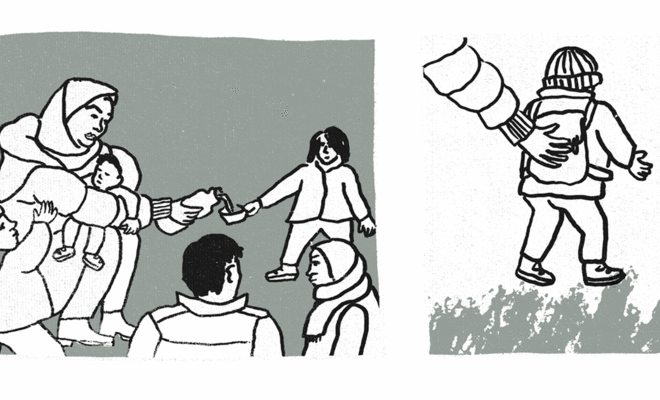The significance of Constitutional Court ruling for the protection of refugees’ rights in Croatia

The Constitutional Court of the Republic of Croatia has issued the first ruling confirming violations of refugees’ constitutional rights in Croatia.
The Constitutional court ruling has been handed down pursuant to three constitutional complaints brought by the members of the Hussiny family. In the joint proceedings, the court held that Croatia had violated the human rights of members of that family and exposed them to the risk of torture and ill-treatment. The ruling concerns the rights of the family of a six-year-old girl from Afghanistan, whose death was caused by illegal expulsion, where police officers ignored the family's demands for international protection in Croatia and ordered them to follow the railway in the middle of the night, hungry and exhausted, and return to Serbia. Shortly afterwards, little Madina lost her life on the railway. After her death, the devastated family came back to Croatia and requested international protection. It was precisely the constitutionality of this procedure that the Constitutional Court ruled on and established violations of human rights.
The competent authorities rejected the request for international protection of members of the Hussiny family without assessing the reasons for seeking international protection. In other words, this family, which after all the horrors and conflicts then lost a daughter and a sister on their quest for protection, was not even given a real opportunity to seek international protection in our country, but the Ministry of the Interior relied exclusively on the concept of a safe third country – in this case Serbia. In addition to violating the refugee family's right to asylum, the Ministry of the Interior's decision, which was later upheld by the Administrative and High Administrative Courts, exposed them to the risk of abuse, torture and/or inhuman treatment due to the failed assessment of Serbia as a safe third country. It was the concept of a safe (European) country that was central in this ruling, and the Constitutional Court found that in the conducted proceedings "it was not established with sufficient certainty that the Republic of Serbia is a safe European third country". Therefore, the Constitutional Court on its own assessed the situation in Serbia with regard to: status of rights of asylum seekers and whether they are threatened with expulsion to a third country without conducting a proper procedure. It assessed that the Republic of Serbia is not a safe third country for refugees, relying on NGO reports as indicators of the real situation in the country. The Constitutional Court has taken the view that in assessing a country as "safe" it is not enough to rely on the normative framework and the numbers of approved asylum applications, but that it is obligatory to take into account "relevant reports by bodies concerned with the protection of refugees and NGOs in order to determine the real treatment of persons". The ruling was made in a procedure in which the Hussiny family is represented by lawyer Sanja Bezbradica Jelavić in cooperation with the Centre for Peace Studies. The case of little Madina Hussiny has also been brought before the European Court of Human Rights, which shall rule on the accountability of the Republic of Croatia for violating a number of human rights of this family, including the right to life of a six-year-old girl.
This ruling is significant for the protection of many other refugees and asylum seekers in Croatia who do not have access to a remedy and who have been systematically denied access to international protection. It is precisely the denial of access to international protection that is the subject of numerous NGO reports, and this ruling proves that institutions have the responsibility to take these reports into account when it comes to making decisions that directly affect people's lives. Reports, documenting the practice of illegal expulsions, although often neglected by the competent institutions, are an important step towards the protection of human rights.



